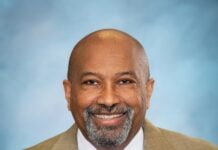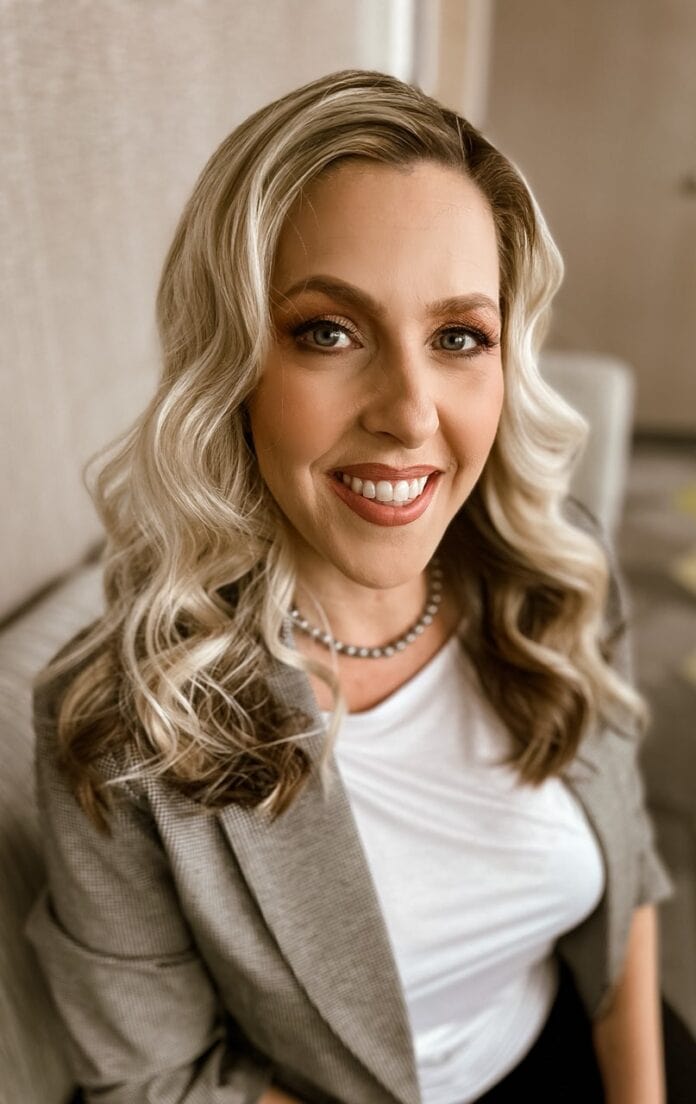Focus Daily News sent the following questions to ALL candidates running for Midlothian ISD School Board. We do not edit the answers in any way and publish them exactly as they were submitted to us.
Mansfield ISD Board Candidate Place 4 Dr. Mandy Sneed
Please provide a high-level overview of your past engagement/experiences, and those of your children, with regards to the school district for which you are running for school board trustee.
Over the last 18 years, we have raised five children in MISD and four were in the Timberview High School feeder pattern. I have had the opportunity to volunteer on several campuses and chaperone field trips. I am currently the Hospitality Chair for the James Coble PTA where I also serve on the Title 1 committee. As a member of the Timberview Booster Club, I also help raise funds for the athletic program by volunteering with concessions. I consider it an honor to give back to the educators who care for our children every day.
What is your vision for education in our district/community? More financial investment, expanding academic programs like JROTC & CTE, be specific.
My vision is in line with the district’s “Vision 2030”, which is for MISD to be a destination district of excellence for all. In order to accomplish this vision, we have to attract and retain teachers while creating an environment where they can be successful in the classroom. We also need to ensure that we pay educators and staff for all of their contributions and impact.
Furthermore, the board needs to support, with policies and financial commitments, the work of diversity, equity and inclusion. We know that MISD is an outstanding district as determined by the State of Texas Accountability Rating of an A. We also know that we are a continuous improvement district. Under the leadership of our superintendent, a DEI audit was conducted and revealed gaps in student achievement. I would like the board to provide necessary funding and infrastructure that contributes to positive student outcomes. I want all students to have the ability to achieve greatness through academics and extracurricular enrichment programs. We can begin with a commitment that students will have reading proficiency by 3rd grade on all campuses.
What does advocacy mean to you and how will you advocate for the students & teachers?
Advocacy is defined by Merriam-Webster as the act or process of supporting a cause or proposal. Advocacy from the perspective of a school board trustee means that one will listen to the facts, recommendations and other information in order to make the best decisions around policies and funding to improve student outcomes. In addition to academic success, student outcomes also include social, emotional, and mental well-being. An overall measure of student outcomes in a K-12 setting would be life readiness. If the Board is effective in keeping student outcomes as the key focus of all decisions, we can ensure that all students graduate from Mansfield ISD life-ready.
In such a competitive marketplace, how will you tackle teacher and staff recruitment and retention? Have you spoken with teachers in the district about their concerns/challenges and do you feel like they are being heard?
I believe teacher recruitment and retention is paramount to the success of our students and the district. During my conversations with teachers across MISD, salary is a top priority. How well we compensate teachers is a direct reflection of how much we value their contributions and impact. Teachers and staff are facing a tough decision to stay in MISD when a neighboring district offers better pay. I am hopeful that the passing of the VATRE will allow the district to compensate our teachers in a competitive and sustainable manner. Teachers have also expressed that improving the cost for insurance would be an additional incentive.
I think we can be very creative around recruitment. I would like to see MISD begin to build a pipeline of future teachers as soon as students graduate high school and through college. Let’s keep in touch with those individuals and encourage them to come back home to put their talents to good use. The district can invest in current staff to help ensure they have room to move upward within the district rather than transitioning out due to lack of internal support. We should also recruit nationally to bring a new level of diversity of thought to our team of educators.
The district leadership must demonstrate our support for teachers in more tangible ways. Teachers need more control in the classroom to successfully teach to the child, and they need support for students dealing with mental health challenges. Additionally, offering stipends to teachers who wish to pursue advanced degrees while staying in the district should be considered. As we address the challenges ahead, I would like to participate in finding viable solutions for retaining and recruiting high caliber educators in MISD.
When dealing with school finances, approving a budget and set tax rates, how do you honor the taxpayer as you consider the district’s fund balance.
We must engage the community early, often and everywhere. Our school board has to be transparent with finances, budget proposals, and information that will help voters be more informed. We must have multiple avenues to find information about the district’s finances, including email, text, website updates, committees, task forces and community town halls. I want to ensure that taxpayers have a voice, that they are informed, and that we are being held accountable as a board.
What is your stance on Equity in Education? In addition to the role of the DEI, what additional steps should be taken to meet the needs of EVERY Student in this District?
Equity in education means that no matter what a student’s background, language, race, economic profile, gender, learning capability, disability or family history, each student has the opportunity to get the support and resources they need to achieve their educational goals. A strong commitment to DEI includes our ability and willingness to assess current systems to ensure that barriers to academic excellence are addressed and removed.
Do you agree with how the District responded to the Covid-19 Pandemic and if not, what would you have done differently?
As a nation, Covid-19 presented what was an unprecedented event in history. There was not a playbook that I’m aware of on how to move forward in the face of a pandemic. I am grateful to the district and teachers for pivoting from in person to remote learning on such short notice. I believe when we encounter new challenges, we should look to the experts in the appropriate fields and weigh their recommendations.
When we were presented with the option to return to campus, we were given copious amounts of evidence that showed wearing masks would help slow the transmission of the coronavirus. However, the district did not implement a mask mandate. In my opinion, a mask mandate would have allowed more students to feel safe enough to return to on-campus learning earlier, reducing the Covid slide for those learners. I would have been in favor of a mask mandate for a period of time.
What do you plan to do to address training at the campus levels to make sure IEP and or 504s are implemented?
School districts are legally obligated to ensure the services described in IEP are rendered. As a result, the board’s role is to hold the superintendent accountable for making sure all schools are making a conscientious effort to achieve the goals in the IEP.
What are your views on banning certain books from classrooms and libraries? What in your opinion, makes a book “okay” to ban?
My perspective on banning books is in line with the AASL. In short, I am not in favor of banning books whether it’s a Dr. Seuss book, New Kid or The Diary of Anne Frank. When book selections can be changed based on “the current climate”, I believe our children are disadvantaged and the opportunity to expand worldviews is limited.
The American Association of School Librarians (AASL, a division of ALA) recommends an outcomes-based assessment for school librarians in helping students flourish in a learning community not limited by time, place, age, occupation or disciplinary borders. The AASL also suggests “when developing policies, each library needs to consider the community that it serves”. Library collections should include authors and topics that are reflective of the demographics of the students in the district.
I also believe that parents should have an avenue to advocate for/against books they don’t want shared with their children.
How do you rank social emotional learning in the school board priorities, especially considering struggles due to covid?
In schools, SEL can take many different forms and often involves a focus on building positive relationships among students and adults, dedicated time to learn social and emotional skills, and weaving in opportunities for students to practice reflection and collaboration during academic subjects. SEL also provides schools with ways to work more closely with families and community partners to develop shared priorities and coordinate practices across different places where students live and learn. I rank SEL among one of the top priorities. This will be necessary to ensure our students are life-ready upon graduation.
Our country has recently seen a movement to introduce politics into every facet of society, including public education and school board campaigns and operations, which have traditionally been non-partisan. What role, if any, do you believe politics plays in the role of a school board trustee?
I don’t believe that partisan politics should have any role in the operations of the school board. A school board exists to improve the outcomes for all students, regardless of political affiliation. Our students need adults to work together on their behalf in the spirit of collaboration.
School board trustees are elected to be leaders and to handle what can be difficult decisions at times. Please describe your leadership style-provide an example.
As a CEO, I lead a team of 58 employees from diverse backgrounds and cultures. I also run a youth nonprofit sports organization with my husband. I work daily to create a workplace that is productive and welcoming for all. Throughout the pandemic we had to work quickly to pivot our operations to protect our employees and young athletes while still maintaining the integrity of the work we were responsible to provide. In a matter of days, we were able to implement a work plan that was both protective to the employees, our business, and the young athletes who were entrusted in our care. This is an example of how I operate my business, and I believe my leadership style of keeping stakeholders first, will translate well when making decisions as a member of the Board of Trustees.
If there’s anything you’d like to add please do so.
My primary focus for running for school board is to help our district embrace and navigate our growing and changing community. Today, the majority of our families live outside of Mansfield in neighboring cities. Our students are 30.8% African American/Black, 30.1% White, 26.2% Hispanic/Latino, and 7.6% Asian or API. A little over 5% represent two or more races, American Indian/Alaskan Native, and Native Hawaiian/Other Pacific Islanders.
Over 30% of students are on free or reduced lunch, and approximately 14% are English as a second language. We have 41 counselors and 93% of our teachers have three or more years of experience.
Diversity, equity, inclusion as well as social emotional learning are imperatives for our district. As we prepare students to be life-ready, they will enter a global economy that is just as diverse. As mental health challenges continue to rise, MISD has to be agile enough to face all of these scenarios and more head on with courageous and empathic leaders. I am ready to serve on Day 1.













